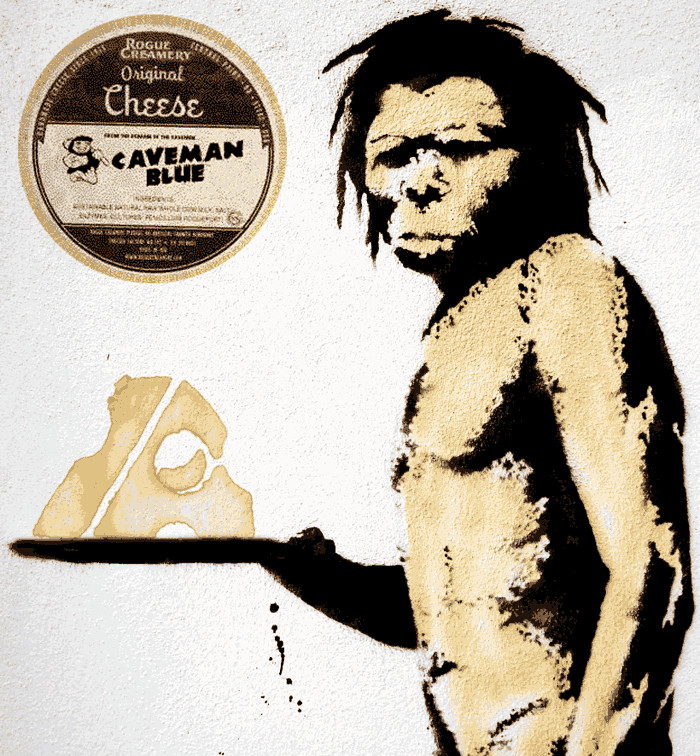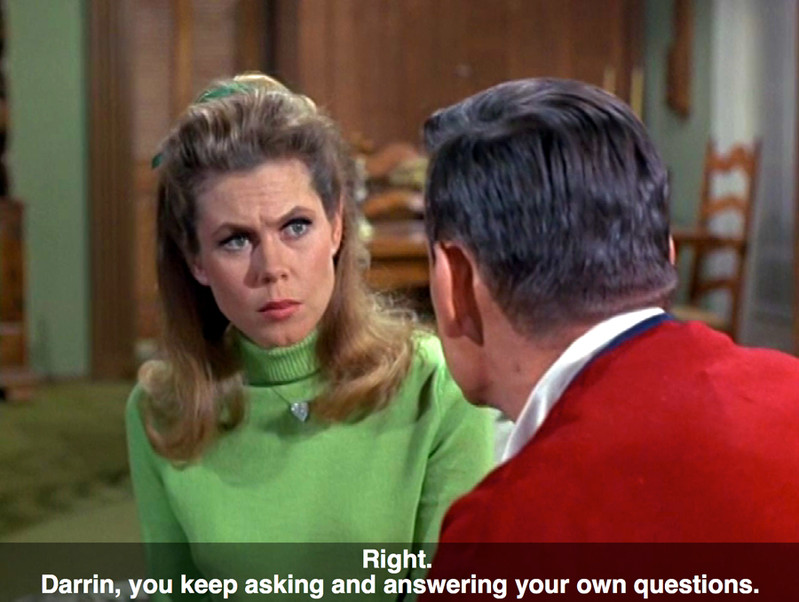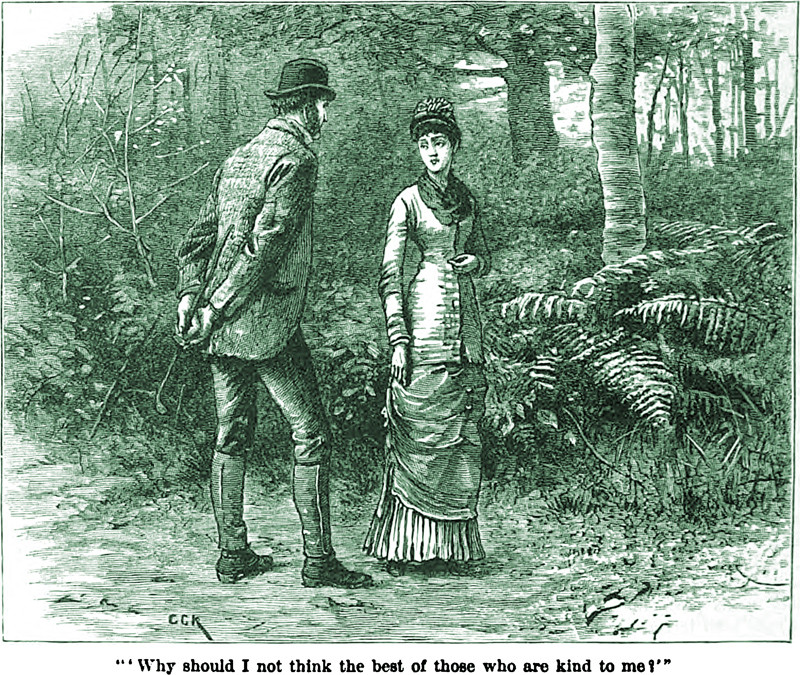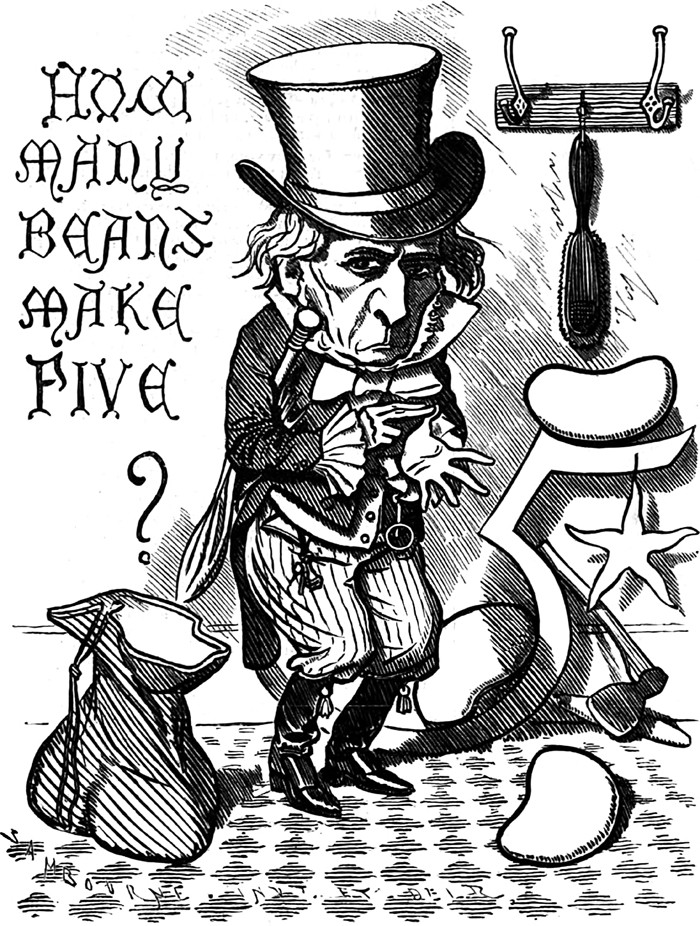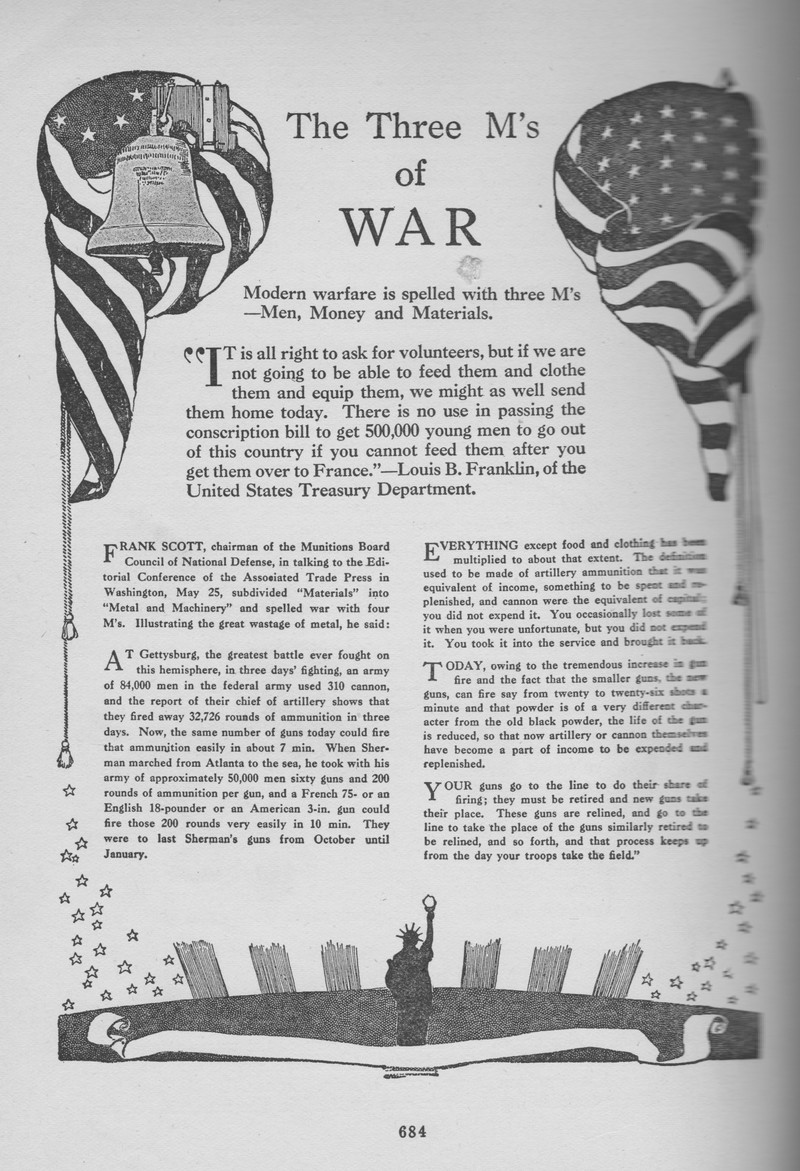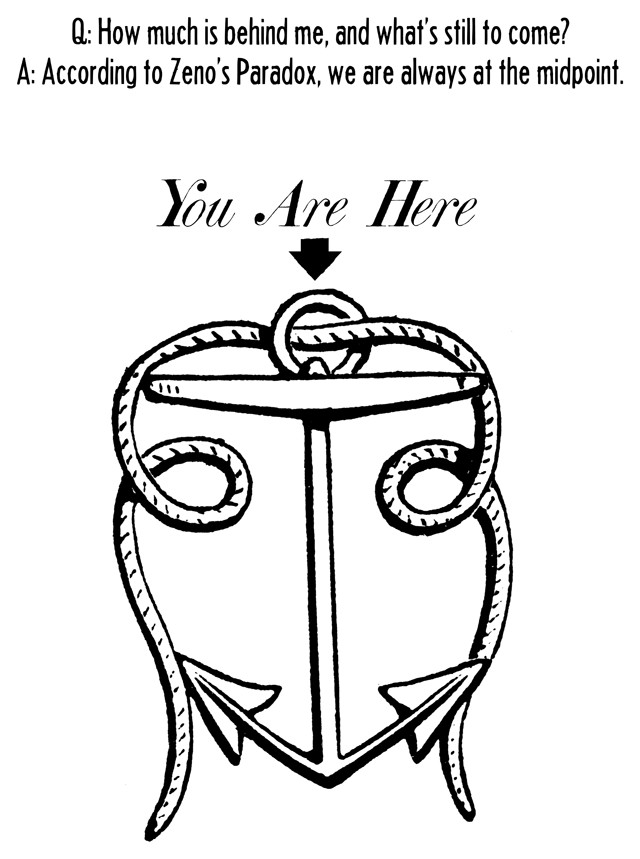Rhetorical Questions, Answered!
|
|
|
 |
 |
 |
Jonathan: Whatever happened to Roquefort dressing? Hilary: It just turned into "bleu cheese" dressing, right? Jonathan: They didn't coexist for a while, like Neanderthal and Cro Magnon? Oddfellow: Yes, but only after the Pre-Camemberian Era, a span of very hard cheeses. [Did you know that cheesemaking colanders have been discovered amongst Roquefort-sur-Soulzon's prehistoric relics?] [Also: not only did cavemen invent the cheese wheel, but they also invented bleu cheese. We present, collaged for your convenience, Exhibit A below: Rogue Creamery's Caveman Blue.]
|


 |
|
|
 |
 |
 |
Q: What, then, is truth?
A: A mobile army of metaphors, metonyms, and anthropomorphisms — in short, a sum of human relations, which have been enhanced, transposed, and embellished poetically and rhetorically, and which after long use seem firm, canonical, and obligatory to a people. (Nietzsche, "On Truths and Lies in the Extra-Moral Sense," 1874).
|

 |
|
|
 |
 |
 |
Q: "Why should I not think the best of those who are kind to me?" ( The Quiver, 1881). A: "The problem with kindness, for Nabokov, is that most visible or public forms of it are fake" (Will Norman & Duncan White, Transitional Nabokov, 2009). |

 |
|
|
 |
 |
 |
Q: Why didn't Rilke just write, "Consider your life sacred. Consider all other lives sacred." Why did he have to be such an asshole? (asks William Keckler) A: "Rilke was distressed because he could not find an adequate German word for 'palm of hand.'" [He rejected Handfläche, flats of the hand, and the archaic Handteller, hollow of the hand.] (André Gide via Beckett via Mark Nixon.)
|

 |
|
|
 |
 |
 |
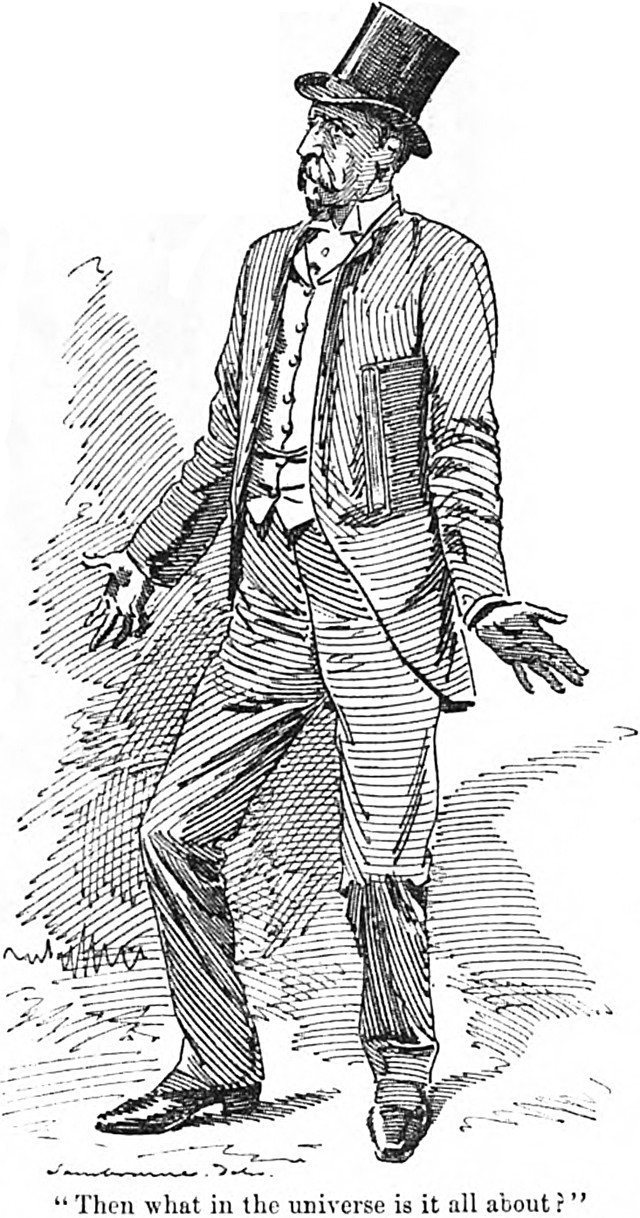
What in the universe is it all about? "Ultimately, it's all about the music, isn't it?" (Samuel David McIlhagga, 2006). (Illustration from Punch, 1893.)
|

 |
|
|
 |
 |
 |
[We answered this rhetorical question a few years ago, but the vintage illustration is "new," courtesy of Punch, 1877.] Q: How many beans make five? A: It’s something of a trick question. The answer is "one." One leguminous pod contains five seeds. Note that this riddle is a corruption of "How many beans make fava." Again, the answer is "one," though admittedly it's one very broad bean. |

 |
|
|
 |
 |
 |
Q: What need of Siege and Conquest in a Play, / When Love can do the work as well as they? (Elkanah Settle, Ibrahim, the Illustrious Bassa [1676]) A: What need, indeed! |

 |
|
|
 |
 |
 |
Q: "Aren't red and blue 'off white' too?" — HBG2A: It's a gray area. (Forgive us.) Here's an image by Jason Paluck showing that red and blue do indeed combine to form off-white.
|


 |
|
|
 |
 |
 |
Q: "Do the clouds want to chime in on how they think my day went?" ( William Keckler) A: No; however, clouds do want many things:
|


 |
|
|
 |
 |
 |
6334863961_cc84643a12_oQ: "[What's] the proper pronunciation of the triple-m configuration when a vowel is blocking the rear exit[?]" — Jeff HawkinsA: Recall that at the end of each episode of "The Dating Game," the host and winning contestants would dramatically blow a kiss to the viewers. When we make exaggerated kissing gestures, a lip-smacking "mmmwa" sound invariably accompanies the pantomime. That's the correct pronunciation of the final m in a triple- m configuration, even if the context is quarrelsome.
|

 |
|
|
 |
 |
 |
Jeff Hawkins explores " preemptive rhetoric," in which rhetorical answers deny being asked. It's a phenomenon we're all familiar with but probably didn't know the name of. See the link for examples, and consider this freshly personal one: [The context is that no one at dinner could recall the name of that well-respected character actor. Hours later, Oddfellow makes a telephone call.] [The caller picks up and Oddfellow exclaims.] A: John Malkovich! Q: Aren't you supposed to be asleep? Preemptive rhetoric! Thanks, Jeff! |

 |
|
|
 |
 |
 |
After fully 27 years, a rhetorical question gets answered during the concert film A Diamond in the Mind. Simon: [directing a lyric from the "The Reflex" to his keyboardist] "So why-y-y don't you use it?" Nick: "I'm saving it for later." |



 |
|
|
 |
 |
 |
"Every now and then some people in your audience will try to answer your rhetorical question. If someone offers you an answer, you need to be able to handle the response." — R. Mark Giuliano, Speak Easy (2005) |



Page 7 of 10

> Older Entries...

Original Content Copyright © 2026 by Craig Conley. All rights reserved.
|



